

Exploring Modern Family Values and Financial Management in Japan
A recent survey conducted by Cross Marketing, a Tokyo-based research company, unearthed intriguing insights into evolving perspectives on family life, privacy, and financial management among Japanese adults aged 18 to 79. With a focus on societal changes, this study aims to capture how personal values and lifestyles are transforming over time.
The survey revealed that a significant 81% of respondents believe that even though individuals may be family, their privacy must be respected. This highlights a modern understanding of familial relationships where personal boundaries are acknowledged and valued. Additionally, 74% of those surveyed feel that getting married does not necessitate holding a wedding ceremony. This sentiment reflects a shift in traditional views regarding marriage celebrations, especially among the younger generations.
Most respondents prioritize a family structure that supports emotional well-being, indicating that 69% feel their family is a source of emotional support. Interestingly, a considerable number of individuals express willingness to delegate caregiving to non-family members if the need arises, showcasing an evolving approach toward responsibility and care within families.
Concerns about bringing children into the world are prevalent, particularly amongst younger individuals. Many expressed apprehensions in parenting, with a notable desire for legal recognition of same-sex marriages, highlighting the demand for inclusivity in contemporary family definitions.
The survey also probed financial dynamics within households, uncovering that the majority endorse a traditional model of money management where the wife controls finances, providing an allowance to the husband — a model prevalent among 43% of participants. This arrangement sees a marked increase in acceptance with age, with older respondents more likely to endorse it. In contrast, younger individuals aged 18-29 prefer a model that encourages financial independence, where spouses manage their own discretionary spending outside shared living expenses. Here, it is reported that 44% of adults aged 18-29 favor this approach, compared to just 24% of older demographics.
Interestingly, the survey indicated that most partners meet through work or mutual acquaintances. However, digital platforms are becoming increasingly popular, especially among younger participants, suggesting a shift towards technology in social connections.
When asked about their relationships, 84% of survey participants expressed the desire for an emotionally independent partnership, indicating a preference for mutual respect and individuality within marriages. This sentiment was further supported by the 82% who believe in lifelong commitment to their spouse. Such data underscores a growing trend towards viewing marriage as a partnership where both individuals retain their personal autonomy.
The younger demographic expressed higher expectations regarding their partnership, with the younger generation keen on shared responsibilities, celebrating anniversaries, and exchanging gifts to enhance their emotional connection.
The survey also addressed aspirations regarding parenthood. Among individuals without families, 46% expressed a desire to marry, while 30% indicated a lack of interest in marriage. Notably, within the age bracket of 18-29, 63% still harbor hopes of marriage, although engagement in active pursuing these goals remains low. In contrast, less than half of older age groups show interest in marriage.
When it comes to having children, there appears to be a notable reluctance as responses leaned towards not desiring children. The desire for parenthood peaked among younger ages, with only 48% of those aged 18-24 expressing a wish to have children, dropping significantly in older demographics.
This research sheds light on current perceptions of family structures and marital dynamics in Japan. With privacy as a priority and evolving financial management strategies, couples today are redefining what family means. The insights gleaned from this comprehensive study demonstrate significant generational disparities, particularly in views toward marriage, partnerships, and parenthood. As societal norms continue to change, understanding these evolving values will be crucial for adapting to the needs of modern families.

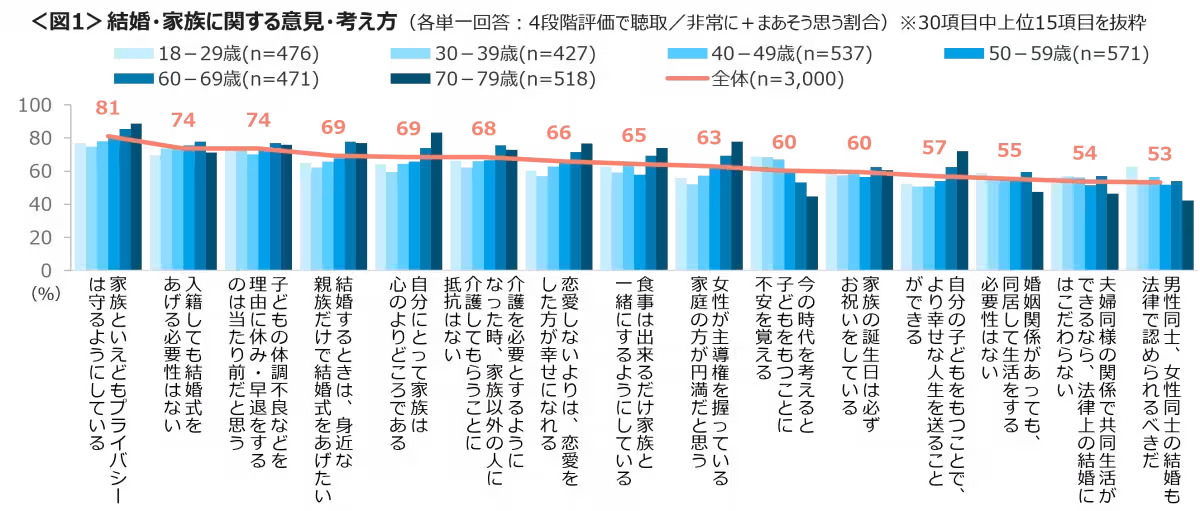
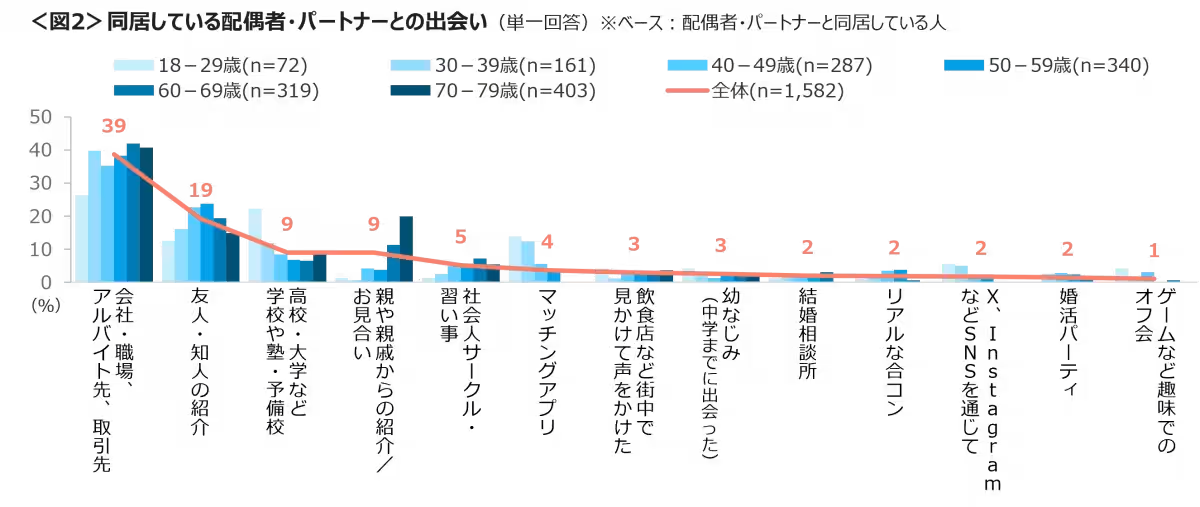
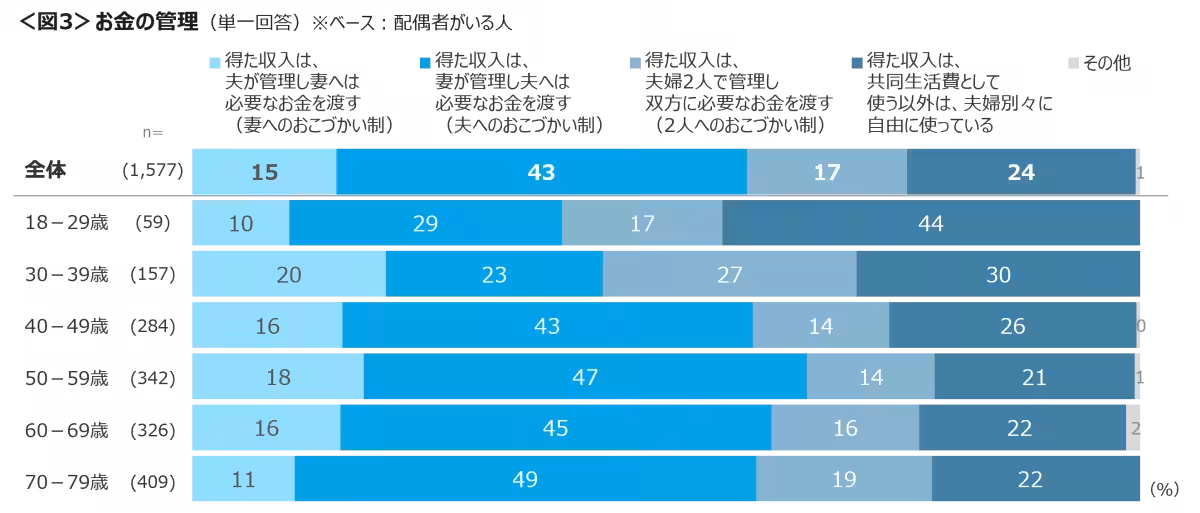
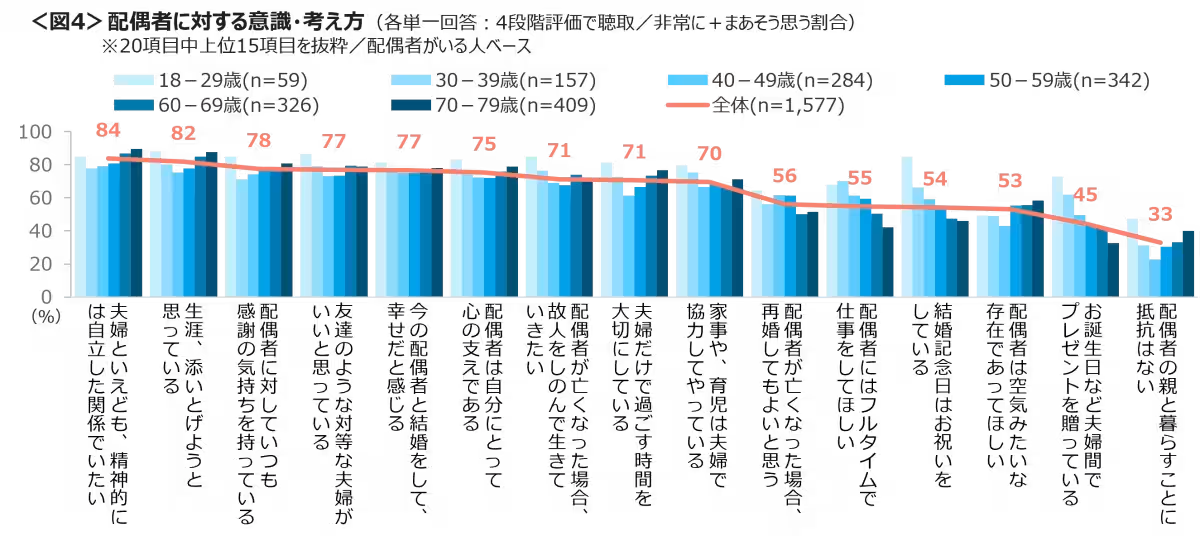
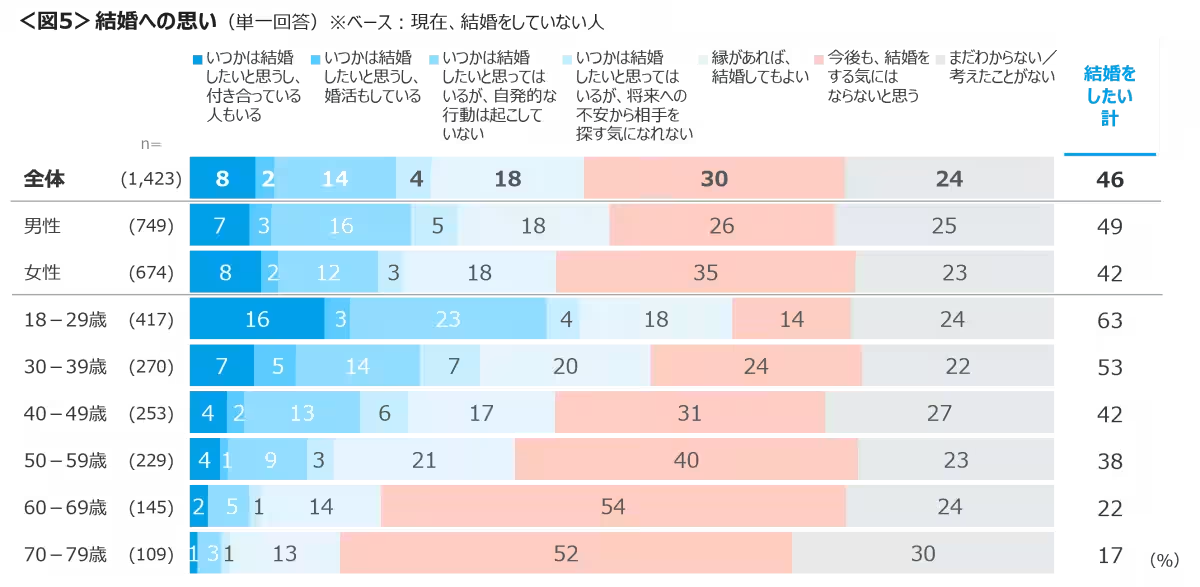
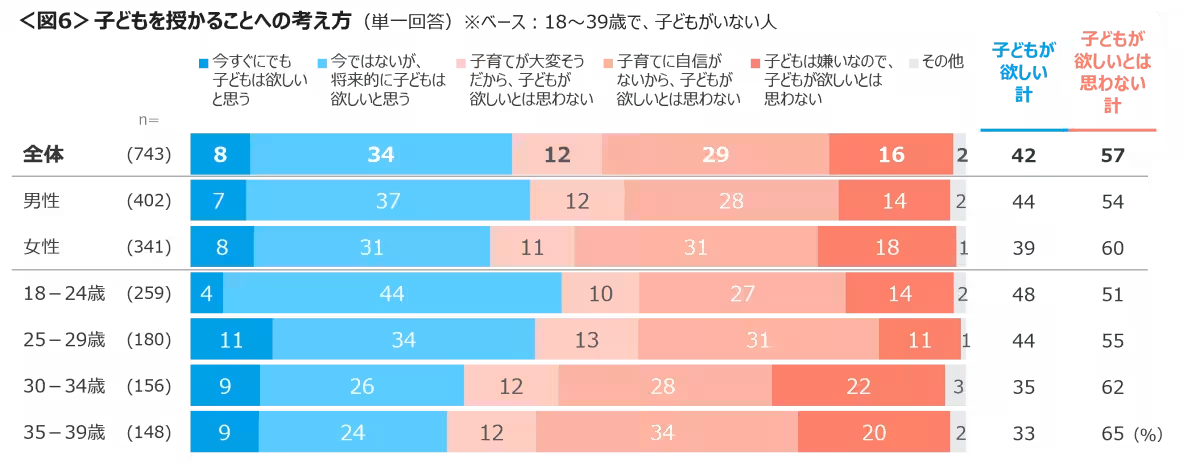
Key Findings on Marriage and Family Views
The survey revealed that a significant 81% of respondents believe that even though individuals may be family, their privacy must be respected. This highlights a modern understanding of familial relationships where personal boundaries are acknowledged and valued. Additionally, 74% of those surveyed feel that getting married does not necessitate holding a wedding ceremony. This sentiment reflects a shift in traditional views regarding marriage celebrations, especially among the younger generations.
Most respondents prioritize a family structure that supports emotional well-being, indicating that 69% feel their family is a source of emotional support. Interestingly, a considerable number of individuals express willingness to delegate caregiving to non-family members if the need arises, showcasing an evolving approach toward responsibility and care within families.
Concerns about bringing children into the world are prevalent, particularly amongst younger individuals. Many expressed apprehensions in parenting, with a notable desire for legal recognition of same-sex marriages, highlighting the demand for inclusivity in contemporary family definitions.
Financial Management in Relationships
The survey also probed financial dynamics within households, uncovering that the majority endorse a traditional model of money management where the wife controls finances, providing an allowance to the husband — a model prevalent among 43% of participants. This arrangement sees a marked increase in acceptance with age, with older respondents more likely to endorse it. In contrast, younger individuals aged 18-29 prefer a model that encourages financial independence, where spouses manage their own discretionary spending outside shared living expenses. Here, it is reported that 44% of adults aged 18-29 favor this approach, compared to just 24% of older demographics.
Interestingly, the survey indicated that most partners meet through work or mutual acquaintances. However, digital platforms are becoming increasingly popular, especially among younger participants, suggesting a shift towards technology in social connections.
Attitudes Towards Partnerships
When asked about their relationships, 84% of survey participants expressed the desire for an emotionally independent partnership, indicating a preference for mutual respect and individuality within marriages. This sentiment was further supported by the 82% who believe in lifelong commitment to their spouse. Such data underscores a growing trend towards viewing marriage as a partnership where both individuals retain their personal autonomy.
The younger demographic expressed higher expectations regarding their partnership, with the younger generation keen on shared responsibilities, celebrating anniversaries, and exchanging gifts to enhance their emotional connection.
Insights on Parenthood
The survey also addressed aspirations regarding parenthood. Among individuals without families, 46% expressed a desire to marry, while 30% indicated a lack of interest in marriage. Notably, within the age bracket of 18-29, 63% still harbor hopes of marriage, although engagement in active pursuing these goals remains low. In contrast, less than half of older age groups show interest in marriage.
When it comes to having children, there appears to be a notable reluctance as responses leaned towards not desiring children. The desire for parenthood peaked among younger ages, with only 48% of those aged 18-24 expressing a wish to have children, dropping significantly in older demographics.
Conclusion
This research sheds light on current perceptions of family structures and marital dynamics in Japan. With privacy as a priority and evolving financial management strategies, couples today are redefining what family means. The insights gleaned from this comprehensive study demonstrate significant generational disparities, particularly in views toward marriage, partnerships, and parenthood. As societal norms continue to change, understanding these evolving values will be crucial for adapting to the needs of modern families.







Topics People & Culture)










【About Using Articles】
You can freely use the title and article content by linking to the page where the article is posted.
※ Images cannot be used.
【About Links】
Links are free to use.